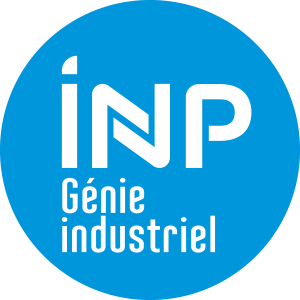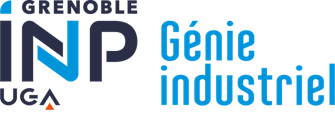Number of hours
- Lectures 10.5
- Projects -
- Tutorials 9.0
- Internship -
- Laboratory works 9.0
- Written tests 2.0
ECTS
ECTS 3.0
Goal(s)
This course teaches a variety of organisational and technical tools that could/should be involved in Product Development Projects. The following themes will be addressed, some are mandatory some are optional.
Mandatory themes:
- Project Management
- System Engineering: Operational Safety
- Prototyping Techniques
Optional theme, choose one among:
- Innovation
- Design for Manufacturing
Only a few hours of lecture or tutorials will be dedicated to each theme, but the next goal is to apply the theme in your project. This is to ensure the acquisition of know-how through practice, under a "learning by doing" modality, with the help when needed of coaching by the specialist teacher for the concrete implementation of the theme in the context of the project.
Choice of theme you will follow:
During the first days of the semester your first choice will be the project topic on which you will have to work with 5 or 6 teammates all along the academic year. Then on this basis and in the next few days you will have to distribute the optional themes so that each theme is represented at least once in your team. Then the theme for which you can not register will be accessible for you if you want through the team's work, with help of your colleagues and the support of the coach.
Content(s)
Content of each theme:
- Prototyping Techniques :
Students will discover the main fabrication techniques available in the workshop, their capabilities, their limits, related machines and software tools. They will learn how to select the most relevant technology to make a part, depending on the shapes, size, constraints, mechanical loads, etc. Learning by practice and case study is the main approach in this theme.
- DFA/DFM
Product design process is built around product specifications. Nevertheless, this not enough to get a product that fits all needs in terms of performance, manufacturing time and cost, as other constraints have to be involved so that the product is easy to produce, with the best quality and cost efficiency. In the lectures about "DFx" (Design for x) machining constraints will be studied through DFM (Design for Manufacturing) and assembly constraints through DFA (Design for Assembly). The aim of these methods is to minimize fabrication and assembly costs by modifying the design taking account of these aspects. EN efficient design can answer the specifications while manufacturing process is also optimized.
- Innovation
TRIZ is a problem solving method which goal is to workaround well known creativity fixation effects. The lecture will go through method principles to setup of some specific tools for problem modeling and problem solving. A few examples will illustrate the concepts and training sessions will allow students to experiment some tools.
- System Engineering, Safety Assessment.
- CM : Model-Based Safety Assessment
- Introduction to Model-Based Systems Engineering (MBSE) and Safety Assessment (MBSA)
- Articulation of MBSE and MBSA
- Model-Based Failure Analysis : design FMECA, Functional (top-down)and Hardware (bottom-up) approaches
- Model-based Reliability Analysis: Fault Tree and Reliability Block Diagram
- Introduction to Model-Based Systems Engineering (MBSE) and Safety Assessment (MBSA)
- TD1 : Tutorial on Model-Based Systems Engineering: from stakeholders needs to systems logical architecture
- TD2 : Tutorial on Model-Based Safety Analysis: from safety requirements to reliability quantification
- CM : Model-Based Safety Assessment
- Project Management
- First module: 3h00 (Start October)
- Project management Introduction
- “Traditional” project management
- “Agile” project management
- Second module: 1h30 (Start October)
- Over view of Project deliverables
- Project deliverables for OPEN:
- Project deliverables for SELECT:
- Third module: 1h30 (January)
- Introduction
- Project deliverables for DO:
- Project deliverables for VERIF/VALID (Verification/Validation):
- First module: 3h00 (Start October)
Written exam. Each student has to answer questions related to the mandatory themes and the optional theme he/she has been registered to.
The course exists in the following branches:
- Curriculum - Engineer student Master PD - Semester 7
- Curriculum - Master 1 GI program GID - Semester 7
Course ID : 4GMP1612
Course language(s): 
You can find this course among all other courses.



